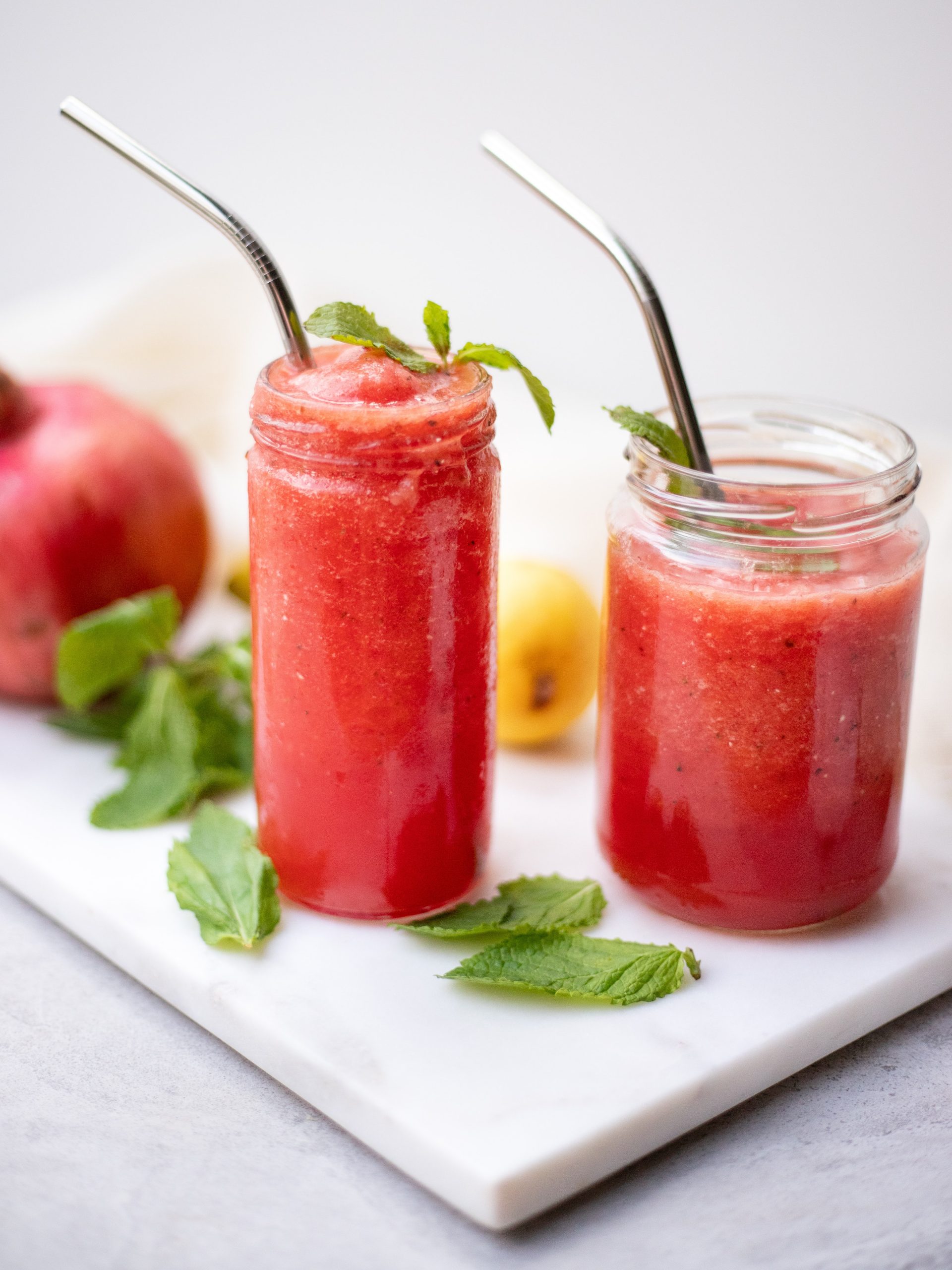Juice cleanses have always been, and still are, popular for a number of reasons. They are perceived to have detoxification purposes. People use them as an attempt to cleanse the body. And they are touted as an efficient short-term weight-loss strategy. All of these reasons come with good intent and show that people are motivated to improve their health. But despite their enduring popularity, when it comes to looking at the results, juice cleanses just aren’t all they’re cracked up to be. In fact, a dietitian will tell you that they’re actually not healthy for you at all. Let’s break it down.
What is a juice cleanse?
A juice cleanse typically involves consuming nothing but fruit and/or vegetable juice for a specified amount of time, usually between one and seven days, with three-day juice cleanses as the most popular option.
Do juice cleanses make you lose weight?
The main reason people choose to go on a juice cleanse is because they believe it will help them to lose weight. Well, this is true. You will lose weight on a juice cleanse, but not in the way you think you will.
This is because, unfortunately, you don’t lose fat during a juice cleanse. What actually happens is that you’re drinking pimped up water for an extended period of time, putting your body in an energy deficit. This means that you are consuming fewer kilojoules than your body requires to function and do everything you want it to do.
Our bodies’ preferred energy source is glucose. It stores any extra glucose it gets away for a rainy day when we don’t eat enough of it. Glucose is stored in the form of glycogen, which gets tucked away in the liver and muscle tissue. For every gram of glycogen that we have stored, we also store a few grams of water with it.
When your body is experiencing an energy deficit because it’s on a juice cleanse, you’re triggering it to use up its glycogen stores, along with the water that goes with it. You’re not actually hacking into your fat stores at all! What you’re seeing disappearing on the scale are simply glycogen and water.
Can juice cleanses detox the body?
The second major reason people go onto the juice cleanse bandwagon is that they believe they’re detoxing or cleansing their bodies. The truth is that this is just not necessary. Your liver is your detoxification organ, and it’s already doing all the cleansing for you.
Of course, an unbalanced diet and an unhealthy lifestyle can make your liver less effective, and when you go on these juice cleanses after a bout of this, it’s not actually the juice that’s helping your liver to recover. Taking a break from processed food and alcohol will help your liver much more than a juice cleanse.
The major red flag of juice cleanses
By now, you might have correctly guessed that juice cleanses are typically void of fibre, protein and healthy fats. These are all incredibly important for the body. You’ve likely learned about the importance of the gut microbiome and its role in numerous aspects of our health. What feeds and encourages a healthy gut microbiome? Fibre! Protein is essential for energy production, balancing blood sugar levels, building and repairing muscle tissue, making hormones and enzymes, and much more. Healthy fats encourage cellular health, support hormone health and are needed for the absorption of the fat-soluble vitamins A, D, E and K. Your body needs these foods, and it won’t get them from a juice cleanse.
What to do instead
If you’ve been eating unhealthily for a while or you’re looking to lose weight, don’t panic buy a juice cleanse. Instead, go back to the basics. Good health is about nailing the basics and doing so consistently. Here are our top tips to do just that:
- At each meal, proportion your plate to be made up of ½ colourful veggies, ¼ lean protein, ¼ wholegrains and a sprinkle of healthy fats.
- Aim to eat 30 plant foods per week (our founder shows you how) to ensure you’re getting as many different nutrients as possible. These can include legumes, wholegrains, fruit, vegetables, nuts, seeds and extra-virgin olive oil.
- Drink enough water. This should be 35-45 ml per kg of your body weight as a starting point. Bump this up if you engage in vigorous and sweaty exercise.
- And if you are insistent on trying a diet because it helps you feel like you’re more in control and being more proactive, make it the Mediterranean diet.



